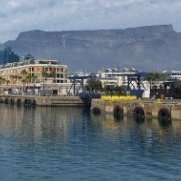Brazil truckers maintain blockades, near standoff with military
-
Recently Browsing 0 members
- No registered users viewing this page.
-
Topics
-
-
Popular Contributors
-
-
Latest posts...
-
7,075
-
116
Thai immigration online 90 day reporting system (2025)
I think they have the dates wrong -
23
Roi Et or Chum Phae?
Yea, those 2 are about as pretty laid back as you can get, or want to be. Only been to Roi Et (town) once, and hung out lakeside. Wife & kid did the aquarium & paddle boats, while I just knock around the lake area, settling in at an ice cream shop. Nuff said there. Attractions seem to be a pile of old blocks and rocks in field, billed as Khmer ruins Not sure what else we really did or saw, or ate, as the whole area, 3 or 4 provinces got to be one of the most boring area in Thailand. Remember we spent one night at Kalasin, lakeside. Explored the area that day and next, but that's about it. Driven though more than few times on the way to the river or Phanom Rung Hist. Park. Aside from PRHP, Phimai Hist. Park was a couple of the only things of interest, and that's if history interest you. Go to Phimai first, as smaller. That's been at least 15+ yrs ago, so not much help. Stopped to peek at to many things, that were a waste of time. Except for 2 historic parks mentioned. Both having decent museums. More than a stones throw from Roi Et though. Like hwy 12 between KK & Phitsanulok, though CP isn't that far from KK. If choosing CP, then on the way, Greenleaf Hydrofarm & Restaurant over by KK airport is well worth a stop. One of the consistently best restaurants we've eaten at, though been 10 yrs at least since last visit. Use to have a branch at Udon Thani, but cheap Charlies wouldn't support it, and rents got silly, so they closed up shop. ฿150 for a plate of food (Salmon), in a spotless, AC'd venue, was way too expensive for them back then -
38
Thai - Cambodia Conflict Trump Threatens Tariff Talks Freeze Unless Thailand-Cambodia Ceasefire Is Reached
BREAKING & IMPORTANT: The 2nd Army Area warns the public that Cambodia has ordered a troop withdrawal, anticipating a barrage of PHL-03 missiles covering several Thai provinces. On July 27, yhe 2nd Army Region issued a warning stating that Cambodia has ordered a withdrawal, and it is expected to fire multiple PHL-03 missiles simultaneously over a long distance of up to 130 kilometers. The radius will cover all of Ubon Ratchathani, Surin, Sisaket, Buriram provinces. And parts of Yasothon (Maha Chana Chai, Kho Wang districts), Roi Et (Muang Suang, Suwannaphum, Phon Sai, Phanom Phrai, Nong Hi, Kaset Wisai, Pathum Rat districts), Maha Sarakham (Phayakkhaphum Phisai district), Nakhon Ratchasima (several southern districts). https://x.com/KhaosodEnglish/status/1949344293573013671 -
191
Analysis Rising Tensions: Is Full-Scale War Looming on Thailand-Cambodia Border?
Following on my post above I asked ChatGPT: what capability does Cambodia have to strike targets inside Thailand and what is their range. A table will be helpful? They produced this. So as long as I take my umbrella to protect me from the MIGs I should be OK. -
186
-
-
Popular in The Pub













Recommended Posts
Create an account or sign in to comment
You need to be a member in order to leave a comment
Create an account
Sign up for a new account in our community. It's easy!
Register a new accountSign in
Already have an account? Sign in here.
Sign In Now